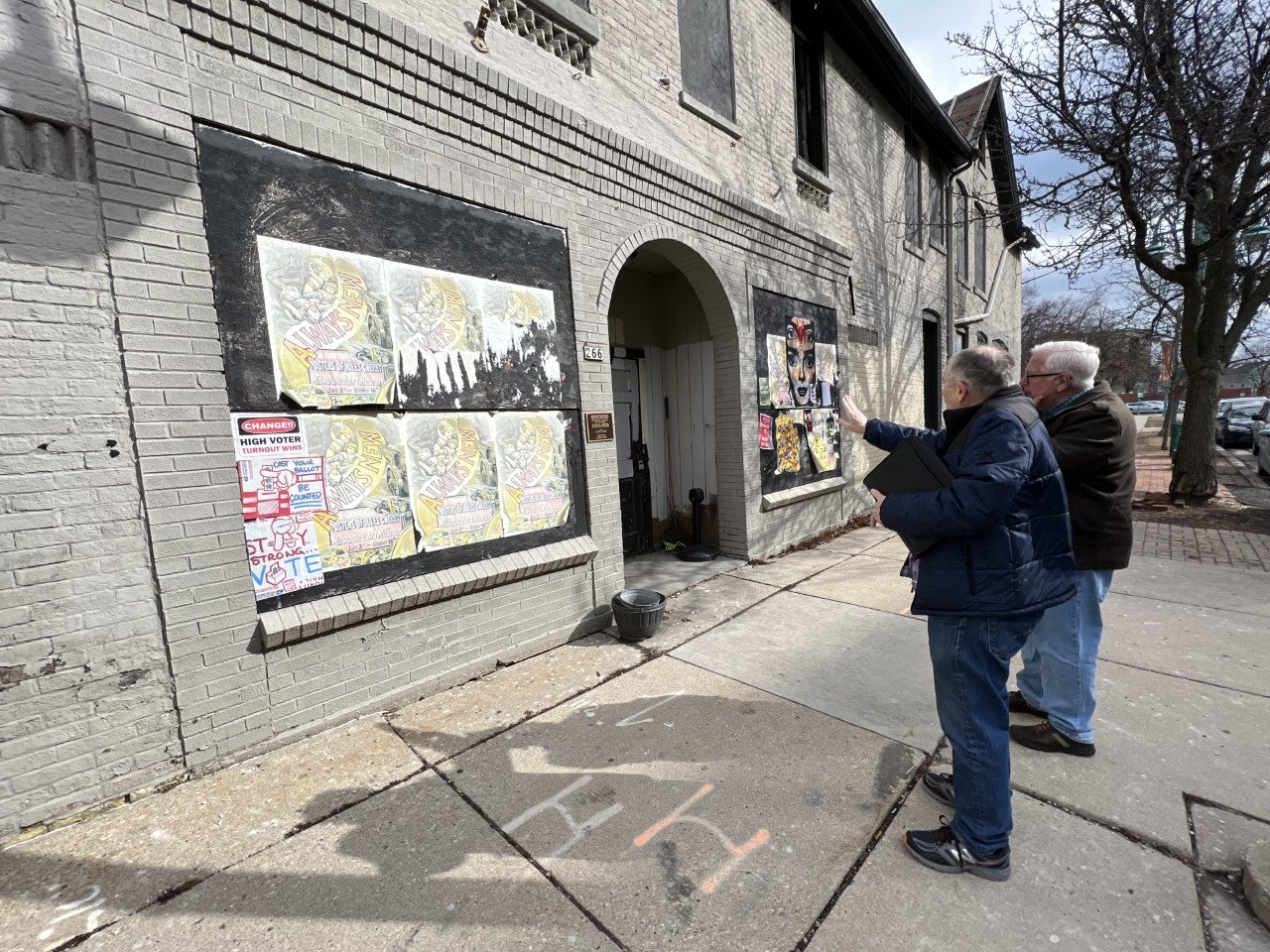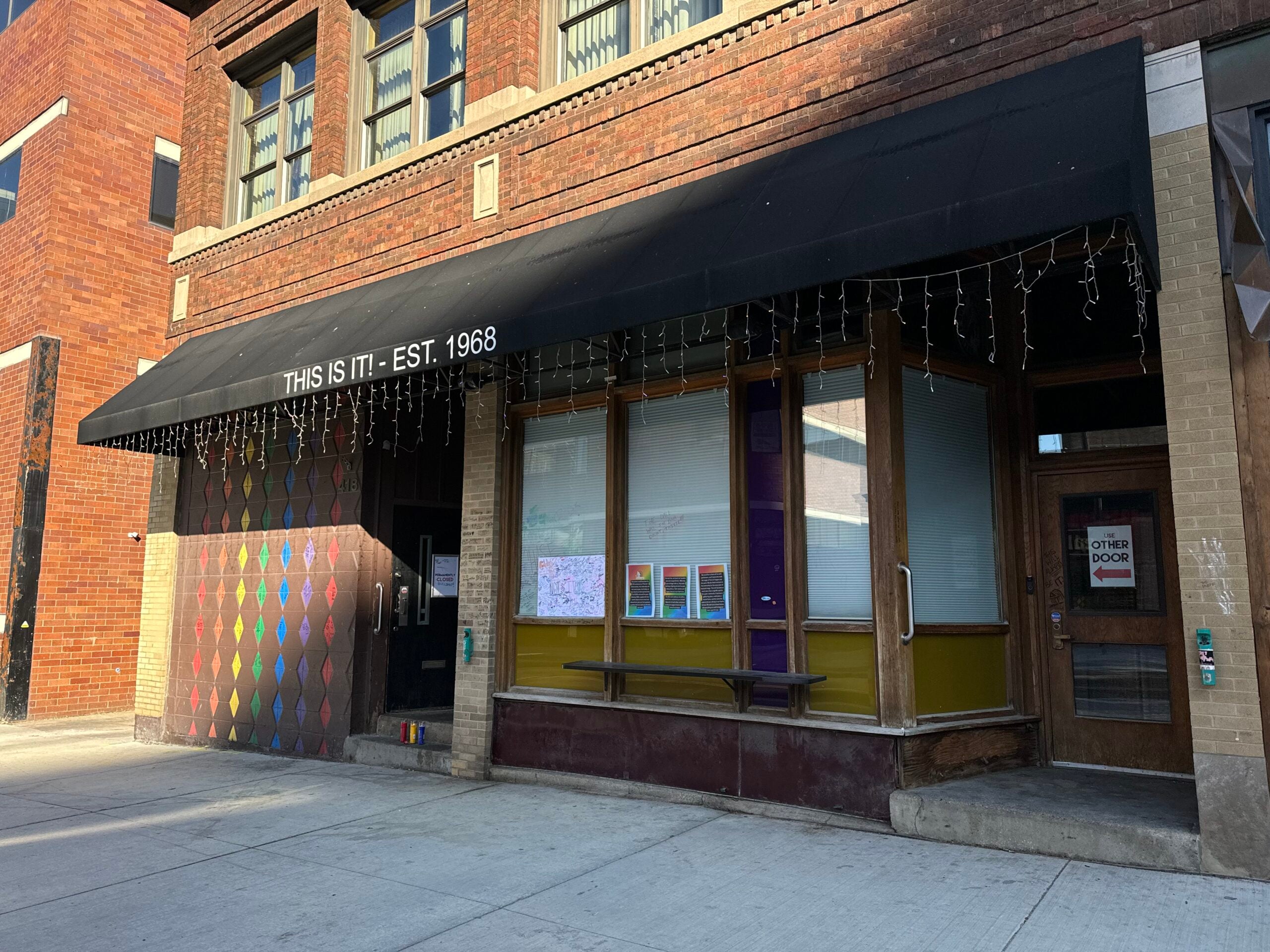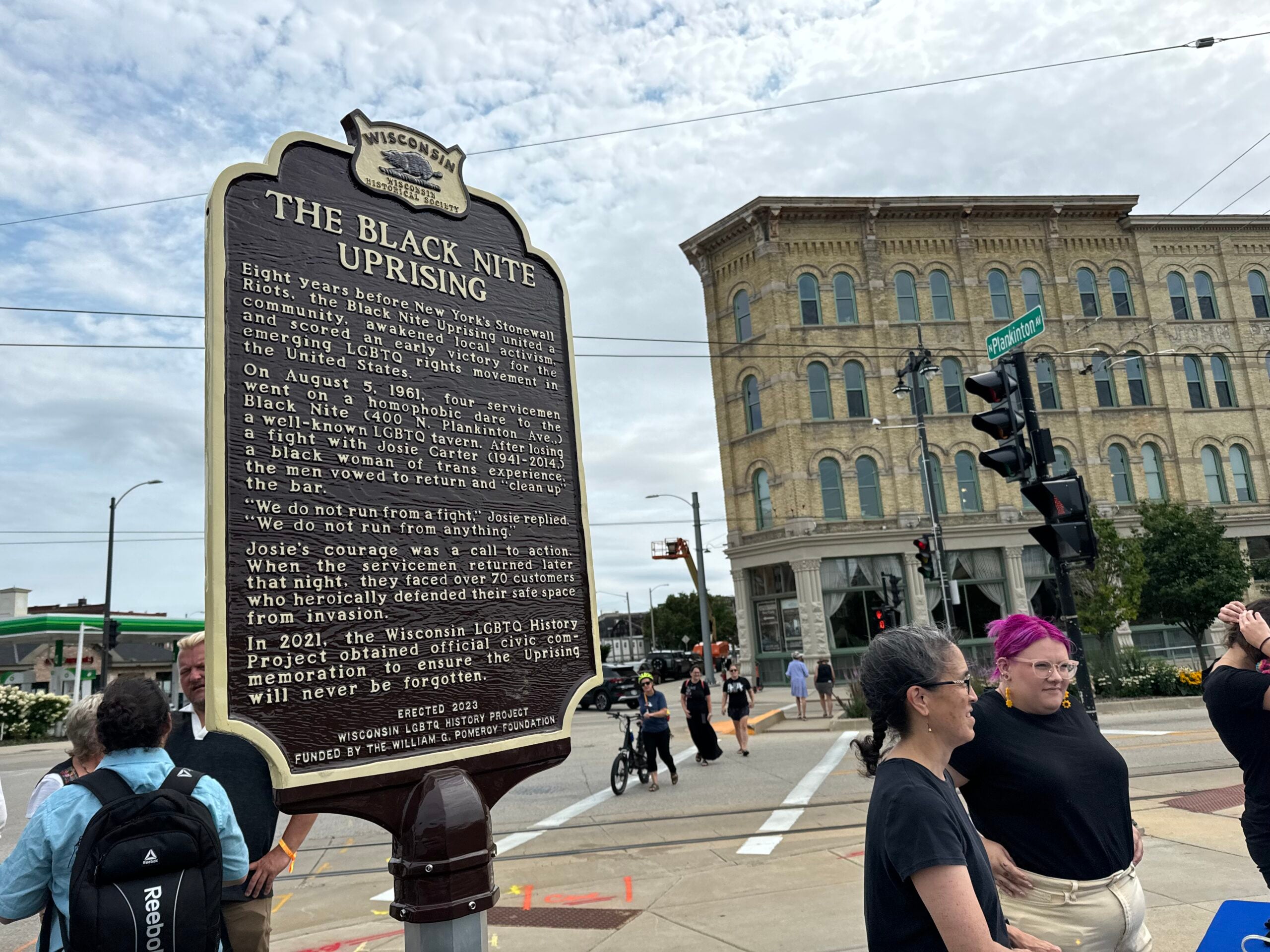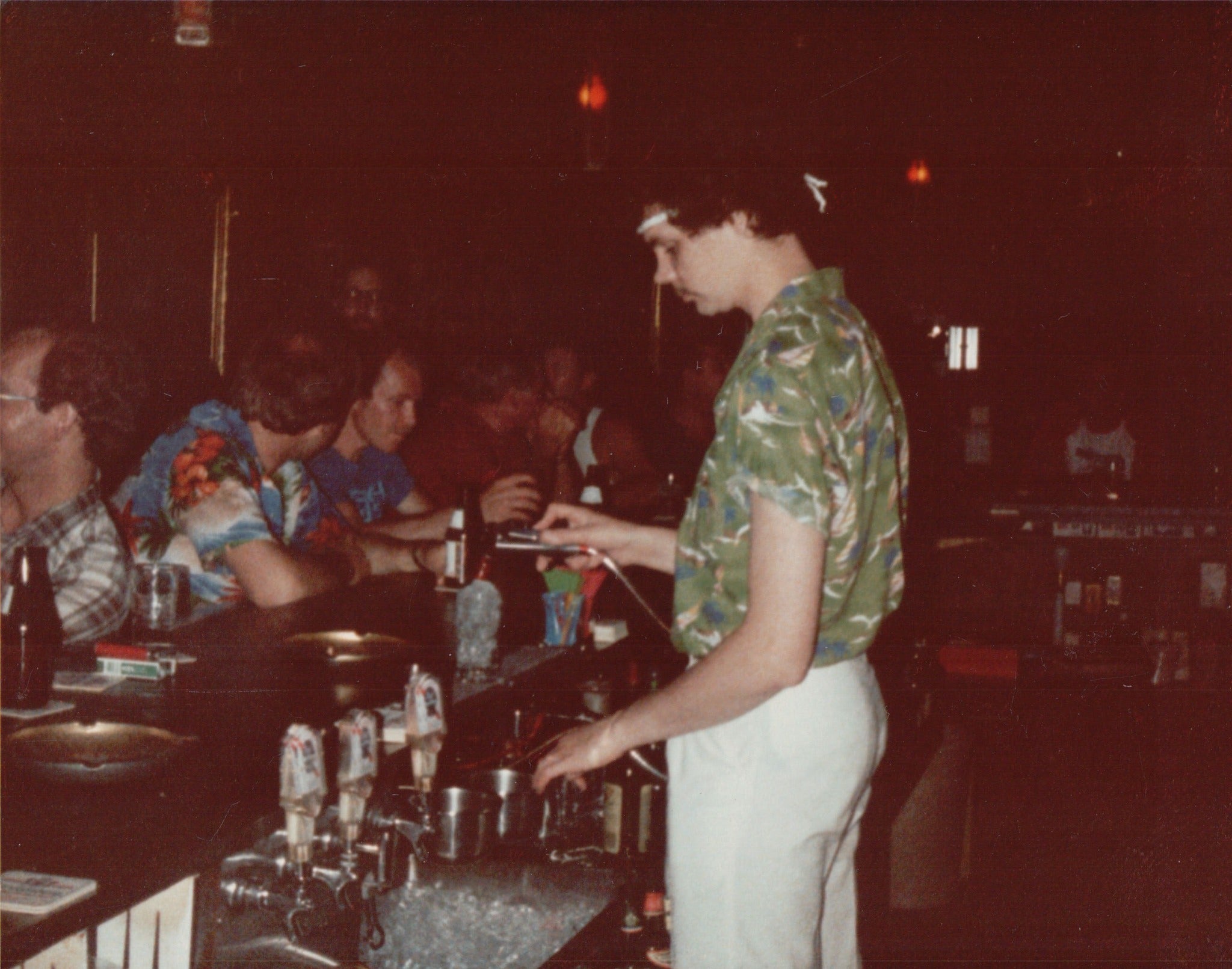Take a walk in Milwaukee’s Third Ward neighborhood, and you’re likely to notice a wedge-shaped building with an ornate, turret-like roofline and cream city brick visible through peeling paint.
Built in 1884 as a tavern and inn, it’s survived two fires, multiple owners and alterations both inside and out.
But it’s best known among people interested in the history of the gay rights movement in Wisconsin as the former home of the Wreck Room Saloon, a leather bar at the epicenter of Milwaukee’s LGBTQ+ nightlife
News with a little more humanity
WPR’s “Wisconsin Today” newsletter keeps you connected to the state you love without feeling overwhelmed. No paywall. No agenda. No corporate filter.
Now, the current owners of the property want to demolish the building to make way for new development. That’s alarmed some who want to see the building saved because of its rich history and importance to the gay community.
Don Schwamb, founder of the Wisconsin LGBTQ History Project, was a frequent customer of the Wreck Room Saloon.
“I was here during the bar’s entire lifetime, a regular customer,” Schwamb said while standing outside the building Wednesday. “It was a great bar. Everybody was friendly. The owner was very generous.”
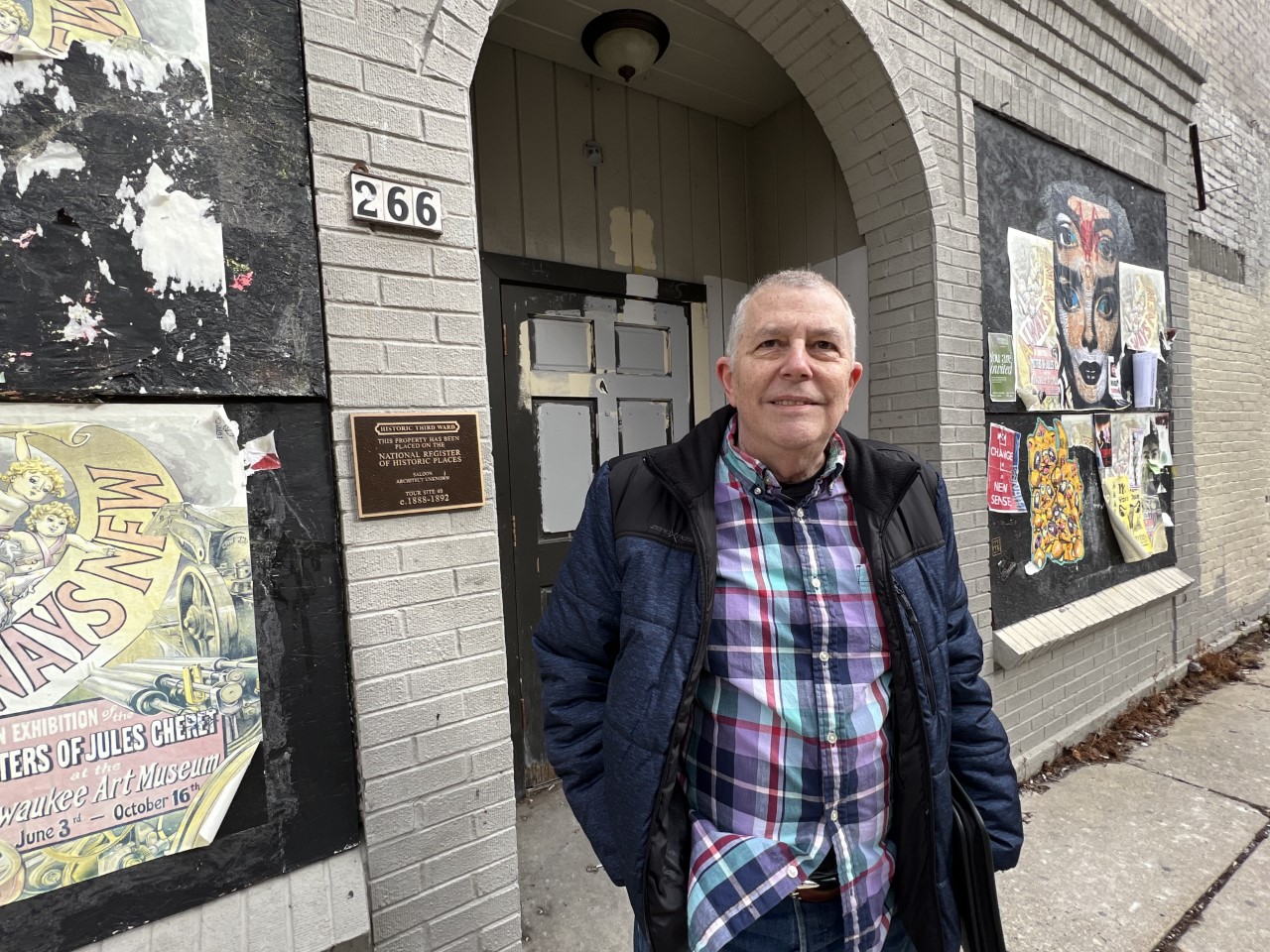
The bar is known for events that brought visibility to Milwaukee’s gay community in the 1970s and ’80s, including a softball invitational and street fairs.
The property is listed on the National Register of Historic Places. It also received a city of Milwaukee historic designation in 2014. But it’s remained unoccupied since 2014, after a fire damaged the building. The roof is in disrepair and graffiti can be seen on its facade. The interior of the property is also heavily damaged.
Even so, Schwamb wants the building to be saved. If changes are made, he wants the integrity of the building to remain intact.
“The state and the city and the county don’t really have a lot of LGBTQ landmarks,” Schwamb said. “I think it’s time that we recognize some of the places significant to the community, and this would be one of those buildings.”
Last November, only the first official historical landmark for the LGBTQ+ community in Milwaukee was approved by the Milwaukee County Landmarks Committee. It’s not known how many similar official landmarks exist across the state.
“To the gay community, it’s a landmark because it was the first real Levi leather bar (in the city), and it was a long-running bar, very good to its customers and a good community activist” Schwamb said.
Sonia Koehler, a student at the Milwaukee Institute of Art and Design, walks by the building often as it’s near her school’s campus. After she found out about the Wreck Room Saloon, she decided to document other similar establishments in Milwaukee that no longer exist.
Koehler hopes the building is not demolished. She said she’s enjoyed learning about its history.
“For me, being a queer person, really invested in queer history and trying to find my place in it … it sometimes feels like I don’t actually know what the real community feels like in a way, so that’s why my personal mission is to find out as much as I can,” Koehler said.
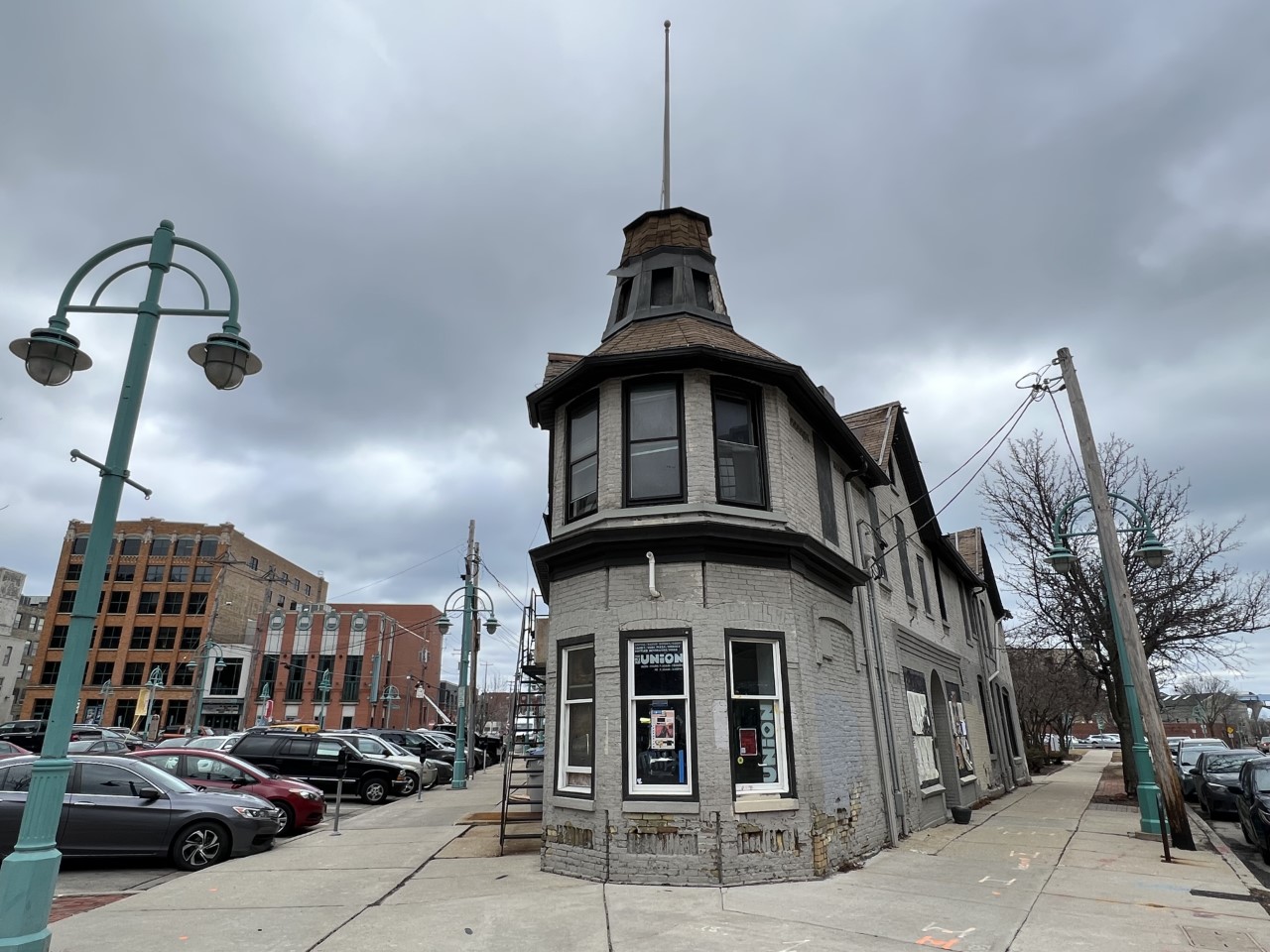
Demolish or save?
The Historic Third Ward Architectural Board met to discuss the current status of the building on Wednesday. Chris Socha, a partner with The Kubala Washatko Architects, works for the current owners. He told the board the best way forward is to demolish the building and build a new development. Socha said the firm’s done four studies on the project and believes extensive renovations are needed to save it.
Socha said if demolition is approved for the site, the owners would attempt to honor the history of the building and neighborhood in the new building.
Demolition would require approval from the Milwaukee Historic Preservation Commission. If a demolition is denied, the owners could appeal all the way up to the common council.
But Milwaukee Alderman Bob Bauman, the chair of the architectural board, would like the building to be saved.
“This was one of the major bars representing an alternative lifestyle, which was very prominent in the Third Ward in the ’70s and ’80s, because it was pretty desolate down here,” he said. “And as a result, you had this culture growing and thriving, and this building is a very clear demonstration of that.”
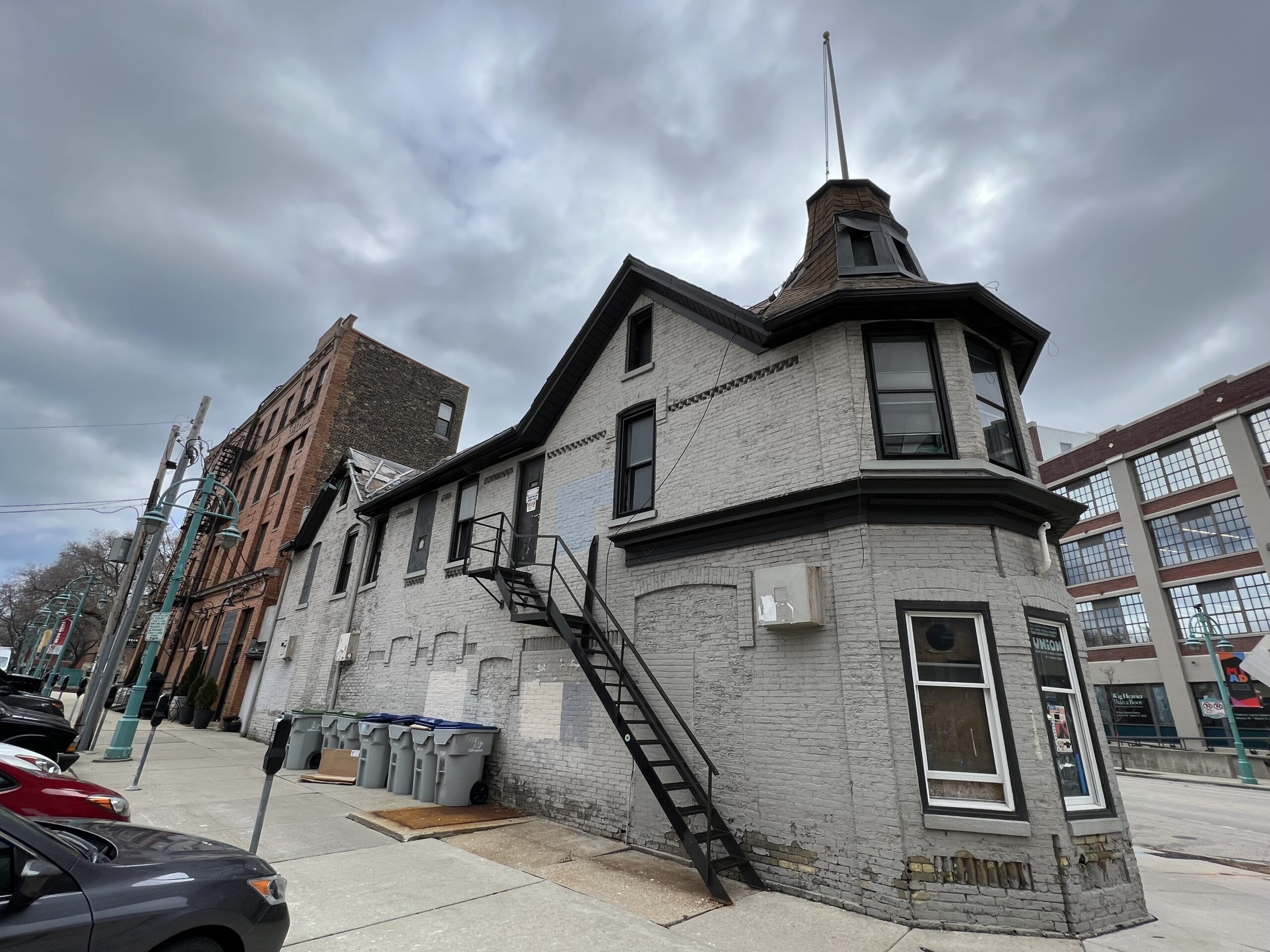
Joselia Mendiolea with the Milwaukee Preservation Alliance also spoke in favor of preserving the building. She said it has ties to the Irish community, LGBTQ+ community and it was also a woman-owned business soon after it opened.
“It would be a shame to wipe out all that history,” Mendiolea said.
“This building is one of just a handful of buildings that survived the Third Ward Fire of 1892. It shows the scale and character of the ward before its destruction and illustrates the variety of the smaller building types once common throughout the ward,” a city report on the property also said.
A rich history
The building was built in 1884 and originally operated as a saloon and inn. The Wisconsin LGBTQ History Project, the largest digital collection of historical LGBTQ media, said one of its early owners, Catherine Foley, was believed to be the first single woman to own and operate a tavern in the Third Ward.
When Foley died in 1896, the building was acquired by the Miller Brewery and used as a tied-house tavern for several decades. Tied houses — a tavern under contract with a specific brewery to sell that brewery’s products — have a long and storied history in Milwaukee.
The building survived the Third Ware Fire of 1892, which wiped out 16 square blocks and burned 410 buildings, according to the Wisconsin Historical Society.
In 1972, Wayne Bernhagen and his partner Bill Kindt opened the Wreck Room Saloon in the building. It was the city’s first official leather bar when it opened.
A city of Milwaukee historic designation report said the bar had a “rustic but tasteful theme.”
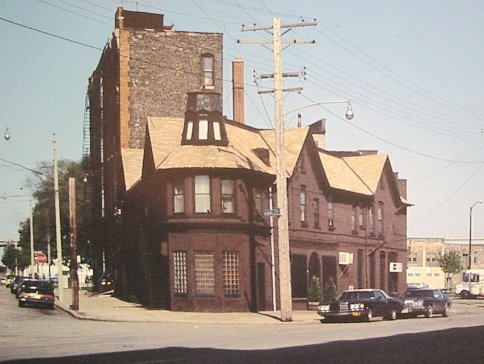
“A visitor to the bar would find the entire front end of an actual car sticking out of one wall in the back room of the bar,” that report said.
The bar was also the hangout spot for the Silver Star Motorcycle Club. That club started out as a motorcycle club but later evolved into a motorcycle and leather social group.
“The tavern’s popularity exploded by the mid-1970s, when it became an anchor of the Third Ward ‘Fruit Loop,’ which also included The River Queen, The Factory, M&M Club, and others, greatly expanding Milwaukee’s LGBTQ nightlife beyond Walker’s Point,” Wisconsin LGBTQ History Project said in a statement.
The bar was the birthplace of the annual Dairyland Classic Softball Invitational, which began in 1978 as the Wreck Room Classic. That classic is now one of the longest-running LGBTQ+ sporting events in the nation, according to the Wisconsin LGBTQ History Project.
Bernhagen also hosted annual street fairs to celebrate the bar’s anniversary.
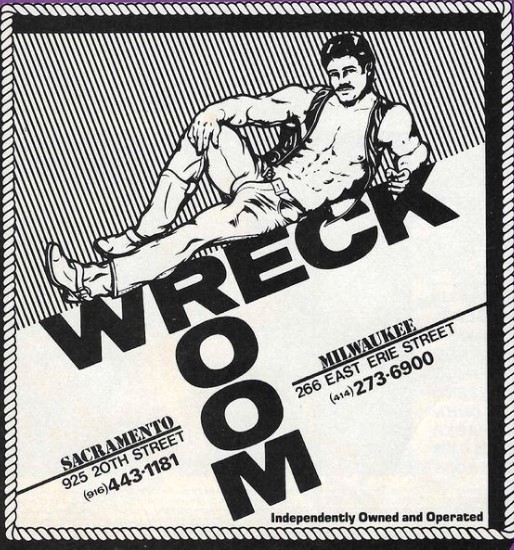
“The fact that Wayne Bernhagen held outdoor anniversary celebrations and established an invitational softball tournament made the gay community more prominent in the community,” a city report said.
But after Bernhagen died in 1987, his business partner Bill Kindt operated the business until 1996. At that time, the Milwaukee Institute of Art & Design bought the building and the Wreck Room Saloon closed. The institute sold the property to its current owners following the fire.
Thomas Rowland, a senior lecturer emeritus at the University of Wisconsin-Oshkosh, said the building could have many possible uses in the future.
“It could be a chamber of commerce for the Third Ward … there could be displays,” Rowland said .”Basically, it could make connections with all of the commercial groups that are in the Third Ward.”
Wisconsin Public Radio, © Copyright 2026, Board of Regents of the University of Wisconsin System and Wisconsin Educational Communications Board.

